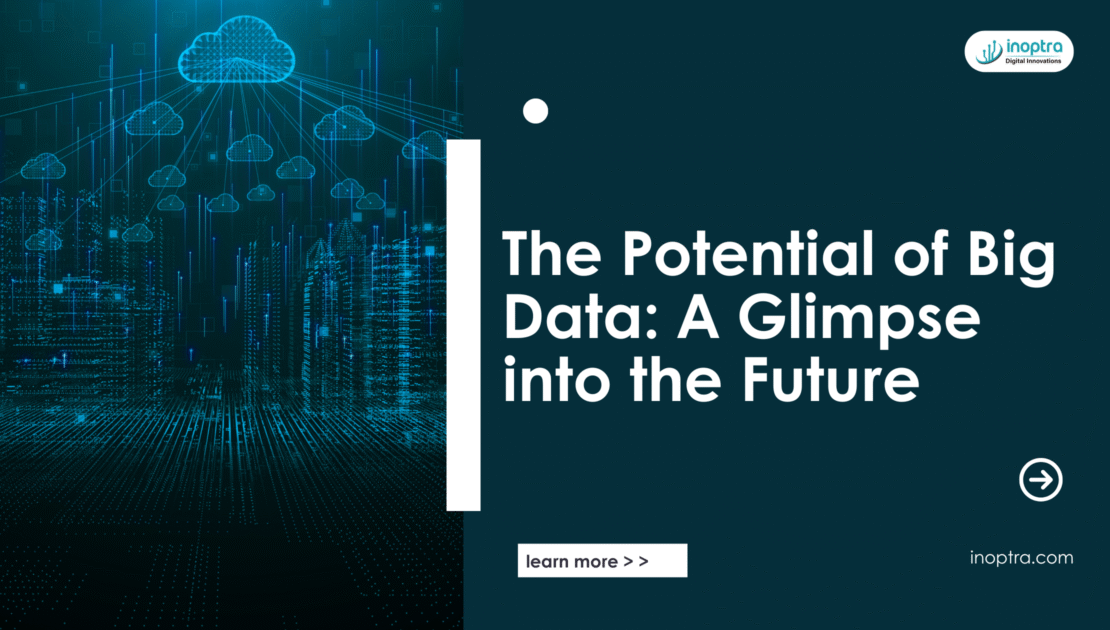
- April 18, 2025
- InOpTra
- Cloud
- No Comments
What’s in the blog
- What is Big Data?
- How is Big Data Used?
- The Challenges of Big Data
- The Future of Big Data
- Few Words Before Wrapping Up
In our hyper-connected world, we’re witnessing an explosion of data creation unlike anything in human history. Each digital interaction—whether swiping a screen, completing an online purchase, or simply browsing—contributes to a vast information ecosystem growing by the second. When properly analyzed, Big Data transforms raw information into strategic advantage, allowing businesses to spot emerging trends, anticipate customer needs, and make decisions rooted in concrete evidence rather than intuition. The organizations mastering this data revolution are rewriting the rules of competition across every sector imaginable. Scroll down to discover what is big data and how big data is used.
What is Big Data?
Big Data is defined as massive amounts of structured and unstructured data that are too enormous and complex to be handled by typical data processing techniques.
Social media, sensors together with online transactions, mobile devices, and other sources generate huge amount of big data.
Major characteristics of Big Data are often referred to as the “Three Vs”:
- Volume: The sheer amount of data being generated is staggering. For example, social media platforms generate petabytes of data daily, from images and text to videos and interactions.
- Velocity: The rate at which information is processed and analyzed is essential for timely decision-making. Also, real-time or near-real-time analysis of data can provide valuable insights that help businesses stay competitive.
- Variety: Data comes in many forms – from text and images to audio, video, and sensor data. These various types of data need to be integrated and processed to uncover insights that would otherwise remain hidden.
How is Big Data Used?

Needless to mention, the applications of Big Data are extremely vast and dynamic. Here are just a few areas where Big Data is making a significant impact:
- Healthcare: Big Data can transform the healthcare sector by enhancing patient outcomes and optimizing healthcare services. By analyzing patient data, medical histories, and genetic information, healthcare providers can offer personalized treatment plans. Predictive analytics also helps identify health risks early on, leading to preventive measures and better resource management.
- E-commerce: Retailers are increasingly using Big Data to offer personalized shopping experiences. By analyzing browsing habits, purchase history, and customer preferences, companies can tailor their marketing efforts, optimize product recommendations, and predict future buying behaviors.
- Finance: In the financial sector, Big Data is used for fraud detection, risk management, and investment strategies. Real-time analysis of transactional data helps identify unusual patterns that could indicate fraudulent activity. Financial institutions also use Big Data to predict market trends and optimize investment portfolios.
- Transportation: Companies in the transportation industry, such as logistics firms and ride-sharing companies, are leveraging Big Data to optimize routes, reduce fuel consumption, and improve operational efficiency. Real-time traffic data, GPS, and sensor data are used to predict traffic patterns, ensuring timely deliveries and reducing costs.
- Smart Cities: As urban populations grow, cities are turning to Big Data to address challenges such as traffic congestion, energy consumption, and waste management. Sensors embedded in infrastructure collect real-time data that can be analyzed to optimize public transportation, improve air quality, and enhance the overall quality of life for residents.
The Challenges of Big Data
While the potential of Big Data is immense, it also comes with its own set of challenges:
- Data Privacy and Security: With the vast amount of personal and sensitive information being generated and
 stored, ensuring data privacy and security is critical. Cyberattacks, data breaches, and unauthorized access to personal data can have significant consequences. Organizations must implement strong data protection measures and comply with regulations like GDPR (General Data Protection Regulation) to protect individuals’ privacy.
stored, ensuring data privacy and security is critical. Cyberattacks, data breaches, and unauthorized access to personal data can have significant consequences. Organizations must implement strong data protection measures and comply with regulations like GDPR (General Data Protection Regulation) to protect individuals’ privacy. - Data Quality: Data can not be generated equally and precisely. For Big Data to be useful, it must be accurate, clean, and relevant. Inaccurate data can lead to faulty insights and poor decision-making, which has multiple consequences . Data quality management practices must be in place to ensure the integrity of the data being analyzed.
- Data Integration: With data coming from multiple sources and in different formats, integrating and harmonizing the data for analysis can be complex. Organizations need advanced tools and technologies to combine and analyze data from disparate systems, ensuring that they derive meaningful insights.
- Skilled Workforce: Big Data analytics requires skilled professionals who can analyze complex data sets and interpret the results. Data scientists, analysts, and engineers are in high demand, and organizations must invest in training and development to build the necessary talent.
The Future of Big Data
As technology continues to evolve, the scope and impact of Big Data will only grow. The emergence of Artificial Intelligence (AI), machine learning, and advanced analytics will enable even more sophisticated analysis of data. Automation will play a key role in processing and interpreting large data sets in real-time, leading to more agile decision-making.
Moreover, as more devices are connected through the Internet of Things (IoT), the volume of data generated will skyrocket. Smart homes, autonomous vehicles, and wearable devices will provide a continuous stream of real-time data that can be used for everything from predicting equipment failures to monitoring health metrics.
Few Words Before Wrapping Up
Big Data is a game-changer across industries, providing opportunities for businesses to optimize their operations, make better decisions, and improve customer experiences. However, to truly unlock the potential of Big Data, organizations must address challenges related to data privacy, quality, and integration. With the right tools, talent, and strategies, Big Data will continue to shape the future of technology, business, and society.
Embracing Big Data isn’t just about collecting information—it’s about transforming it into actionable insights that drive innovation and growth. As we look ahead, the future of Big Data promises even greater advancements, and those who can harness its power will be poised for success in an increasingly data-driven world.
Are you interested knowing how big data can help your business take the next level? Reach out to our experts now!

